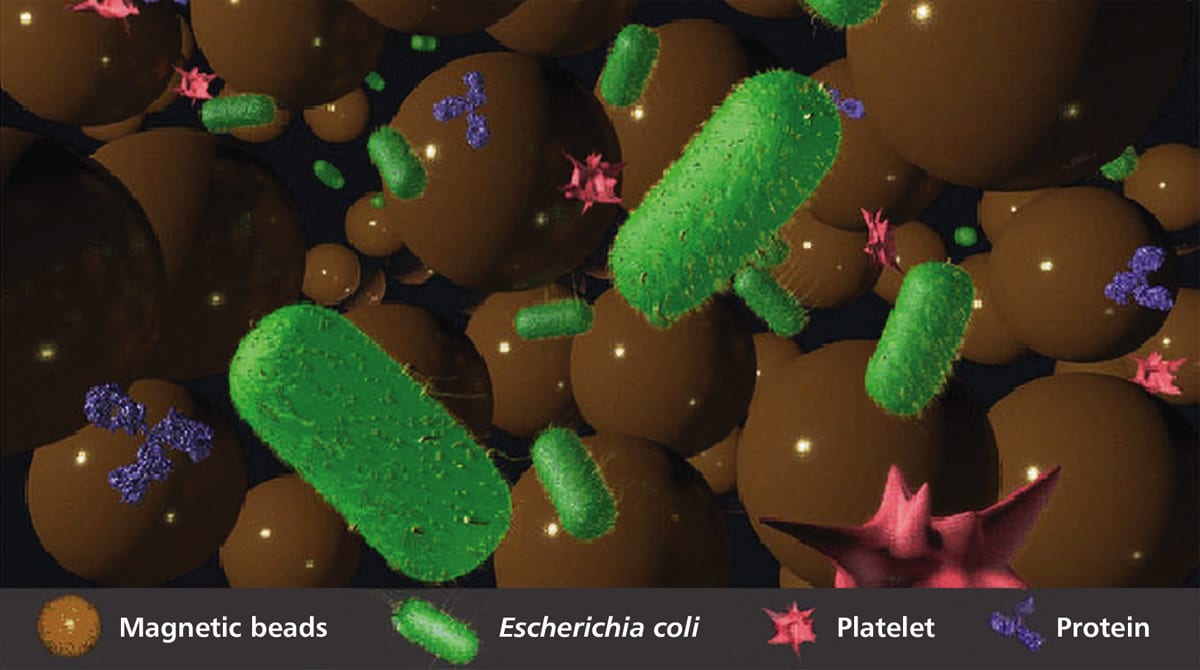
Engineering researchers have developed a next-generation miniature lab device that uses magnetic nano-beads to isolate minute bacterial particles that cause diseases.
To provide rapid and accurate detection, sample purification and preparation is critical and essential. One of the major problems for detection is how to better isolate higher concentrations of pathogens. The microfluidic lab-on-a-chip enables detection of bacterial infection, especially in bodily fluids.
The device is a lab environment that can be used in field hospitals or clinics and should be much faster at collecting and analyzing specimens than the commercially available membrane filters. Its wide, shallow channels trap small bacteria molecules that are attracted to packed, magnetic microparticles.
This combination of the deeper channels on the nano-device, increased flow rate of fluids where bacteria are suspended, and the inclusion of magnetic beads along the device channels improves upon the process of capturing/isolating bacterial samples.
Researchers were able to successfully isolate bacteria from various fluids with a microparticle-based matrix filter. The filter trapped particles in small voids in the device, providing a larger concentration of bacteria for analysis. An added advantage of a smaller device such as this allows for multiple samples to be tested at the same time. The device can either quickly detect bacteria in the device or release them into certain chemicals to analyze them.
In addition to isolating and detecting bacteria in water and human plasma, the team is working with whole blood samples to understand and detect blood infections such as sepsis.
For more information, contact Michelle Cometa at

